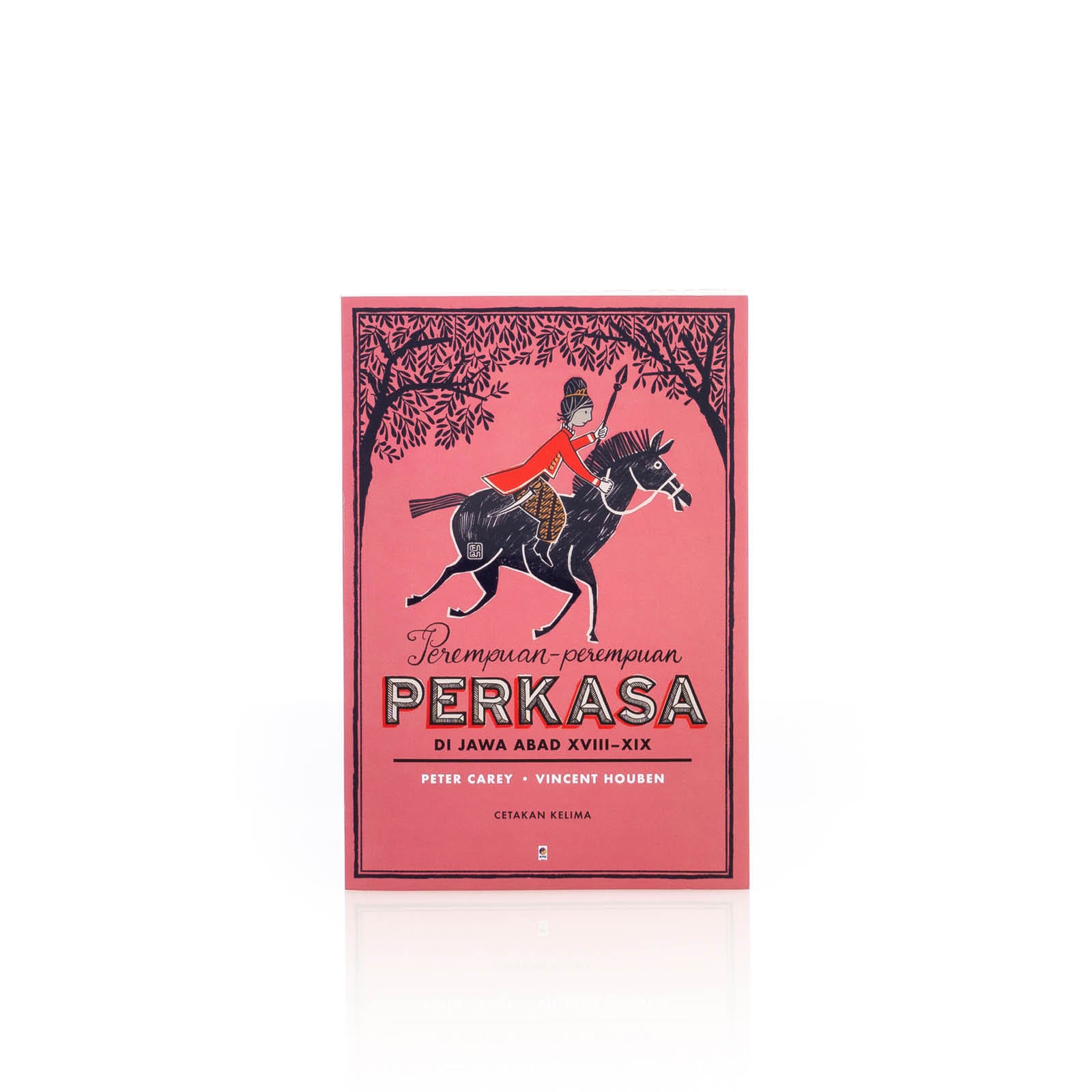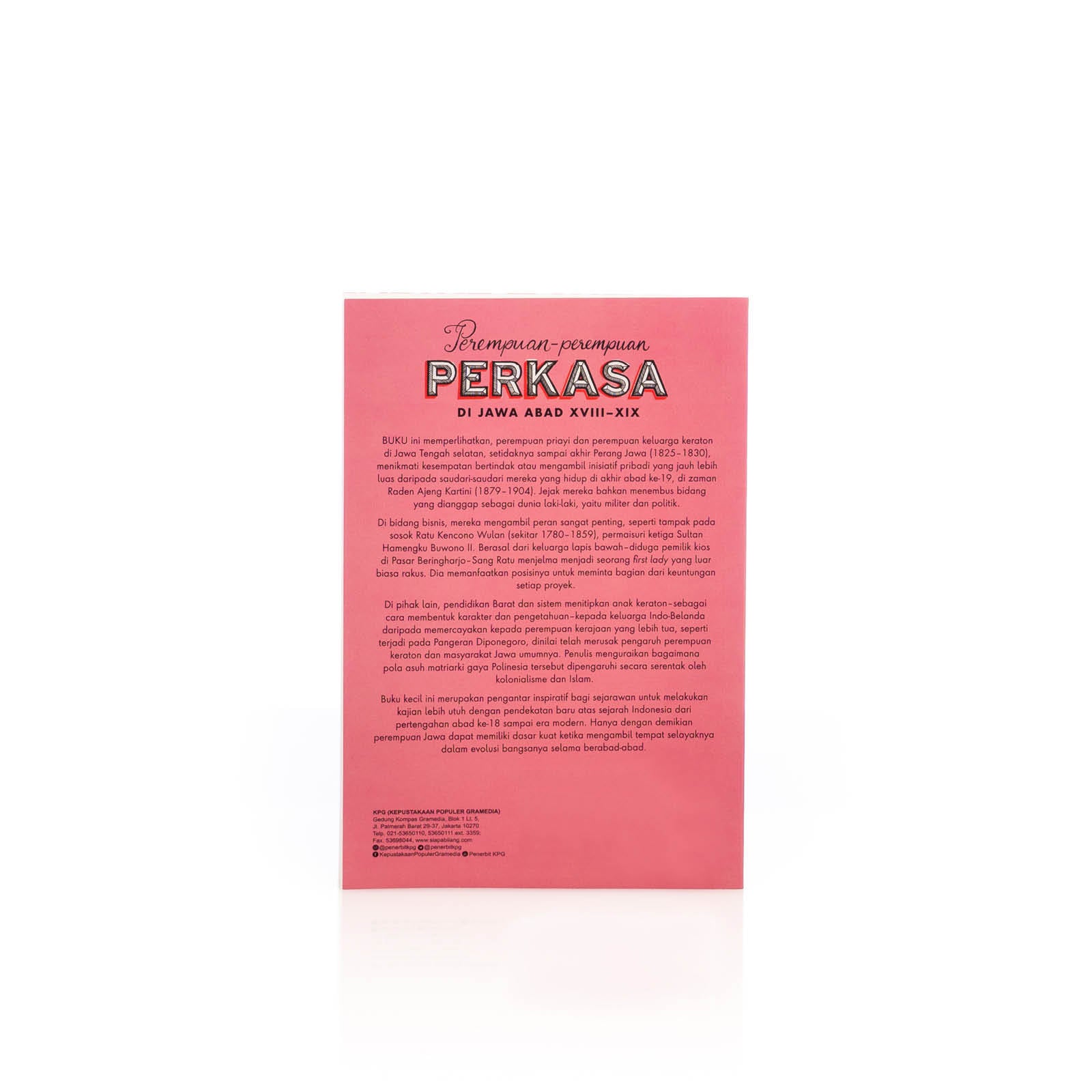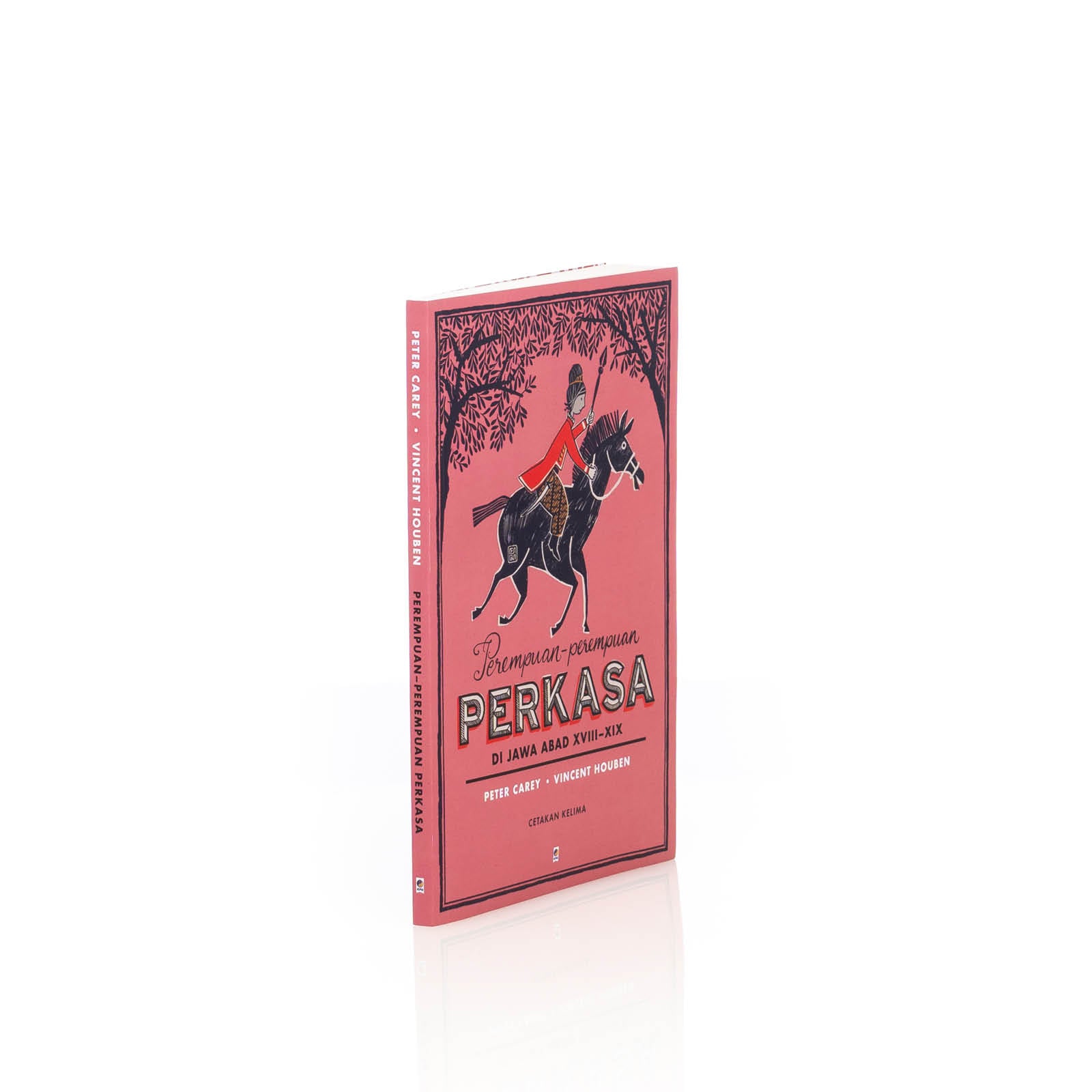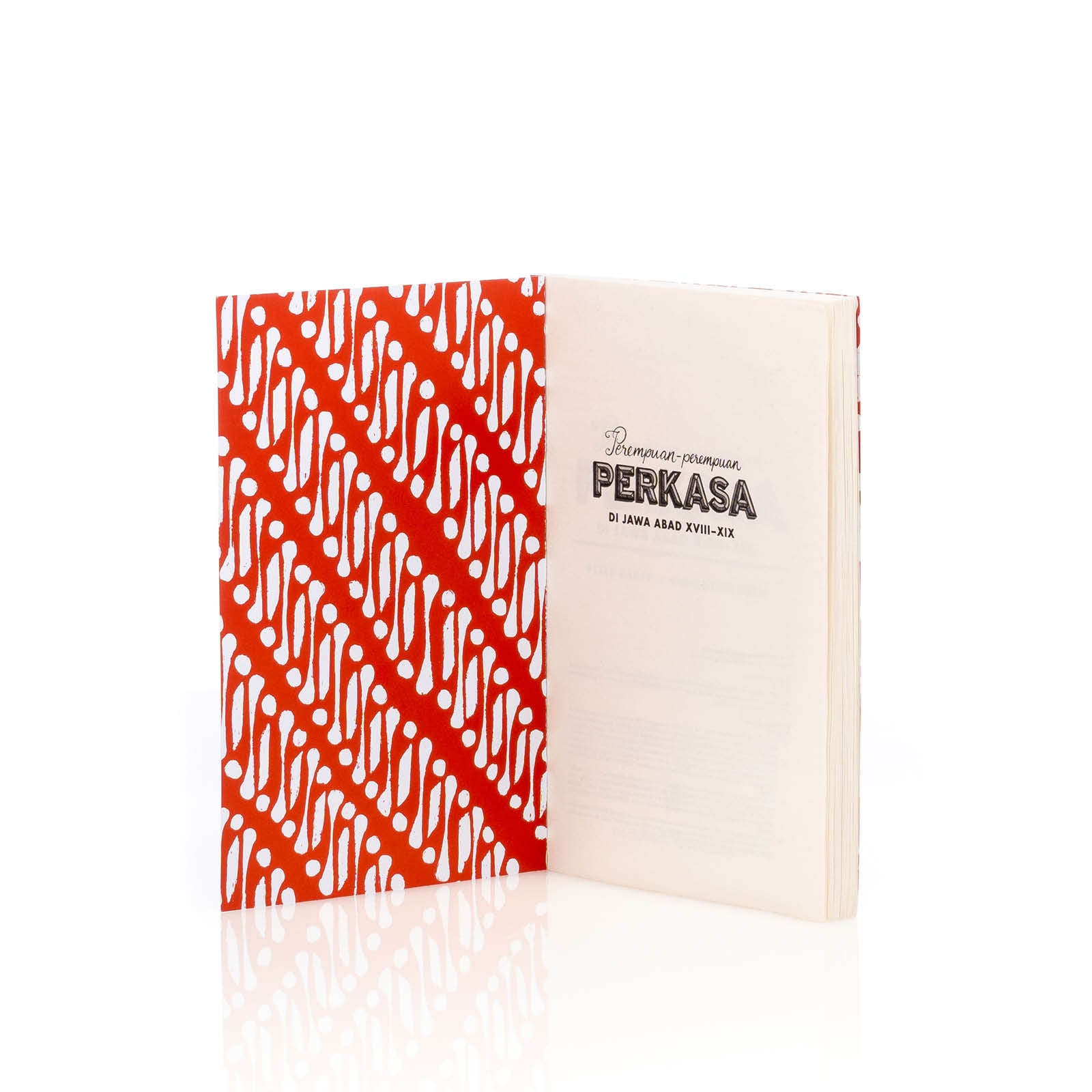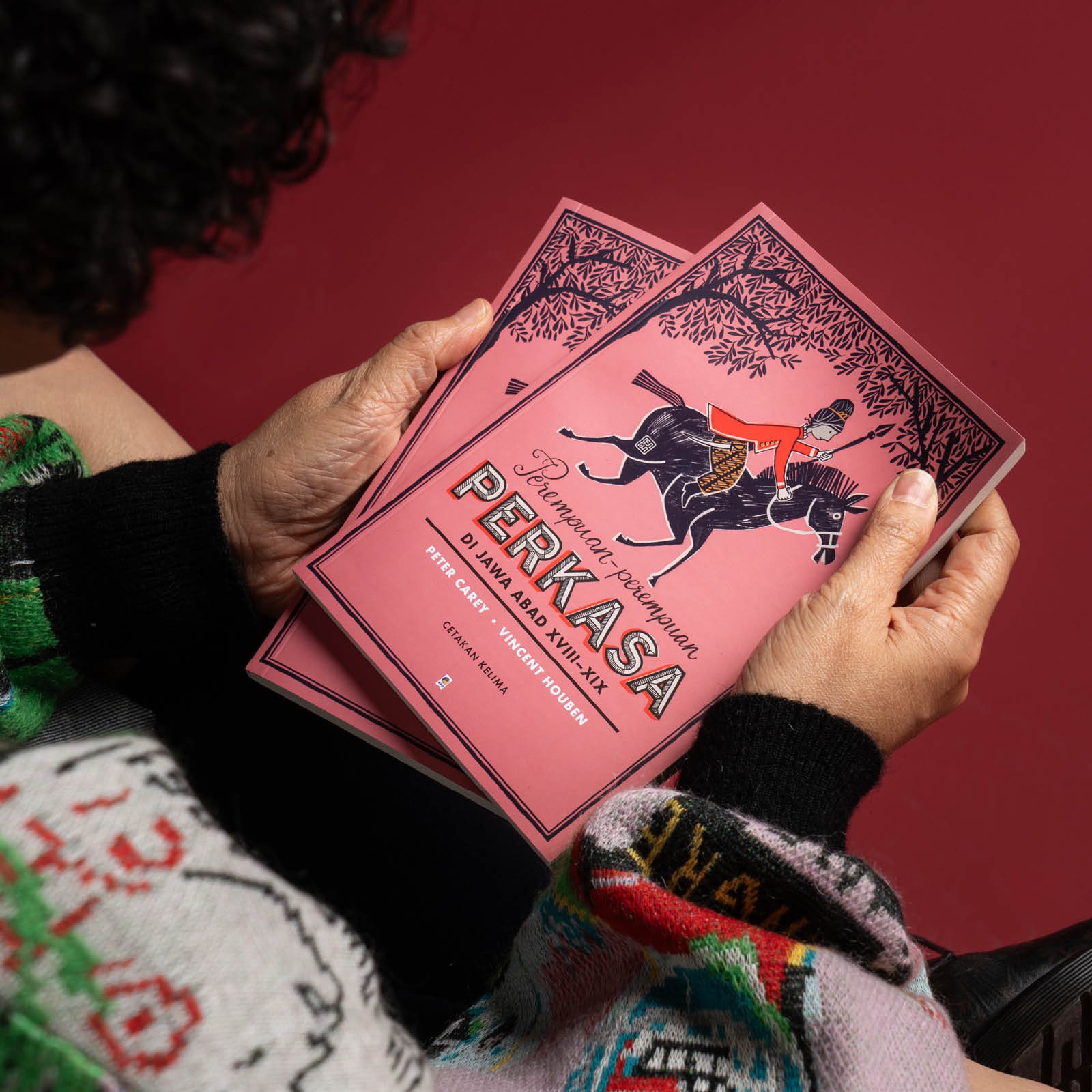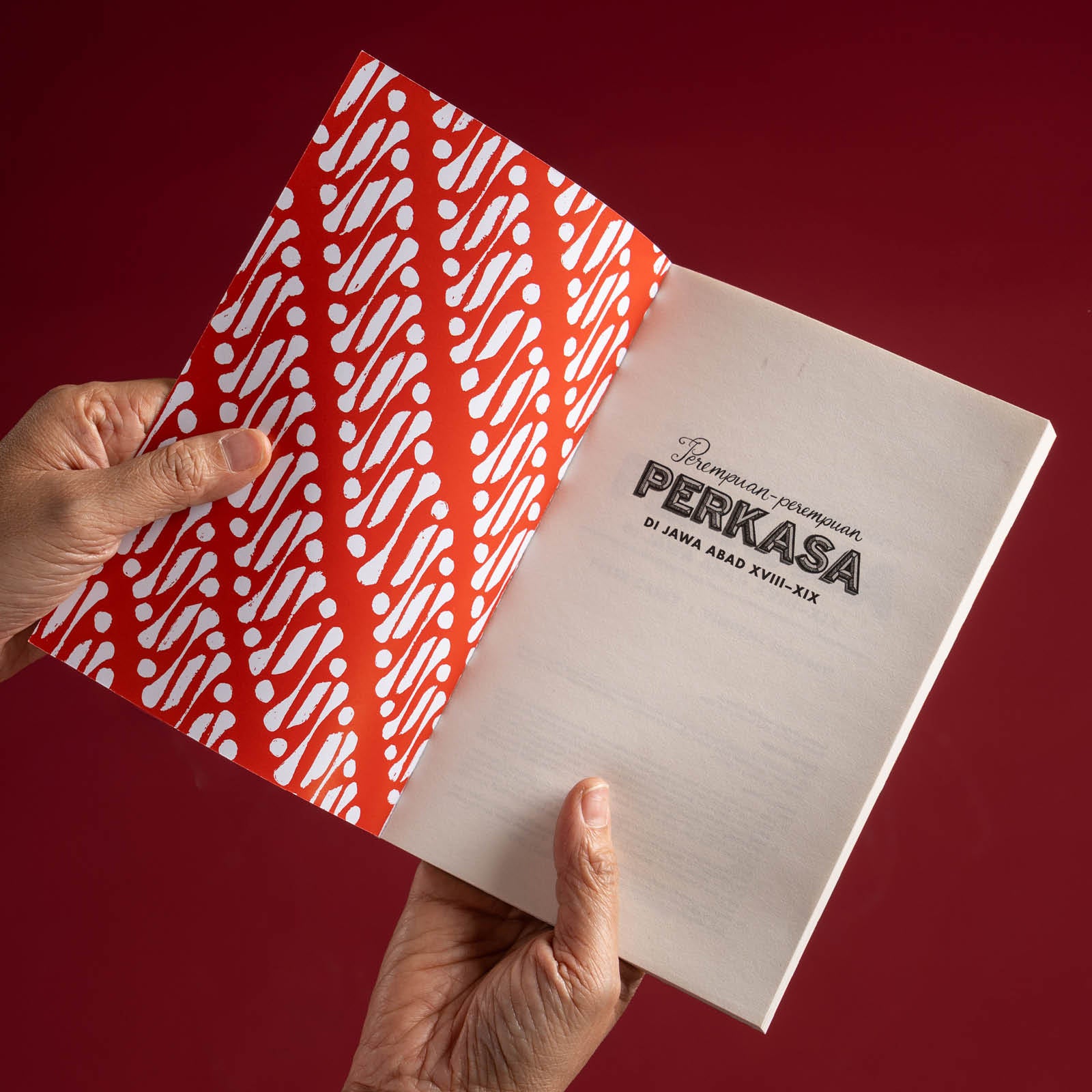Perempuan-perempuan Perkasa
Description
The illustration featured on the book cover is also available on an Originals Maker Bag.
This book illustrates that, at least until the end of the Java War (1825-1830), noblewomen and women from royal families in South Central Java enjoyed much broader opportunities for personal initiative compared to their counterparts in the late 19th century during the time of Raden Ajeng Kartini (1879-1904). Their influence extended into traditionally male-dominated fields such as the military and politics.
They played significant roles in business, as exemplified by Ratu Kencana Wulan (around 1780-1859), the third queen of Sultan Hamengku Buwono II. Hailing from a lower-class family—rumoured to be kiosk owners in Pasar Beringharjo—Sang Ratu transformed into an exceptionally ambitious first lady. She utilized her position to claim a share of the profits from every project.
On the other hand, the introduction of Western education and the practice of entrusting royal children to Indo-Dutch families for character and knowledge formation were considered to have undermined the influence of palace women, as seen in the case of Prince Diponegoro. The author describes how colonialism and Islam simultaneously influenced this Polynesian-style matriarchal upbringing.
This concise book serves as an inspiring introduction for historians to delve deeper into the history of Indonesia from the mid-18th century to the modern era, using new approaches. Only through such studies can Javanese women establish a strong foundation for their rightful place in the evolution of their nation over the centuries.

